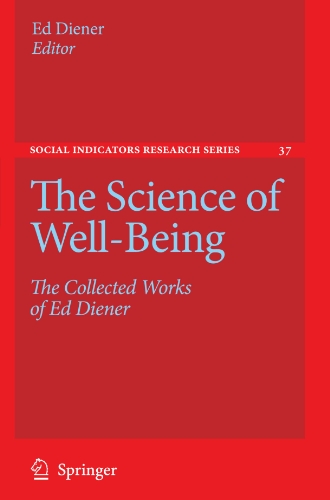

Most ebook files are in PDF format, so you can easily read them using various software such as Foxit Reader or directly on the Google Chrome browser.
Some ebook files are released by publishers in other formats such as .awz, .mobi, .epub, .fb2, etc. You may need to install specific software to read these formats on mobile/PC, such as Calibre.
Please read the tutorial at this link: https://ebookbell.com/faq
We offer FREE conversion to the popular formats you request; however, this may take some time. Therefore, right after payment, please email us, and we will try to provide the service as quickly as possible.
For some exceptional file formats or broken links (if any), please refrain from opening any disputes. Instead, email us first, and we will try to assist within a maximum of 6 hours.
EbookBell Team

0.0
0 reviewsThe Collected Works of Ed Diener, in 3 volumes, present the major works of the leading research scientist studying happiness and well-being. Professor Diener has studied subjective well-being, people’s life satisfaction and positive emotions, for over a quarter of a century, and has published 200 works on the topic, many more than any other scholar. He has studied hundreds of thousands of people in over 140 nations of the world, and the Collected Works present the major findings from those studies. Diener has made many of the major discoveries about well-being, which are outlined in the chapters.
The first volume presents the major theory and review papers of Ed Diener. These publications give a broad overview of findings in the field, and the theories of well-being. As such, the first volume is an absolute must for beginning scholars in this area, and offers a clear tutorial to the history of the field and major findings. The second volume focuses on culture. This volume is most unique, and could sell on its own, as it should appeal to cultural psychologists and anthropologists. The findings in the culture area are mostly all derived from the Diener laboratory and his students. Thus, the papers in this volume represent most of the major publications on culture and well-being. Furthermore, this is the area that is least well-known by most scholars. The third volume on measurement is the most applied and practical one because it discusses all the measures used, and presents new measures. Even for those who do not want to study well-being per se, but want to use some well-being measures in their research, this volume will be of enormous help.
Volume 1: Gives a broad overview of findings and theories on subjective well-being.
Volume 2: Presents most of the major papers on well-being and culture, and the international differences in well-being
Volume 3: Presents discussions of measures of well-being and new measures of well-being, and is thus of great value to those who wan